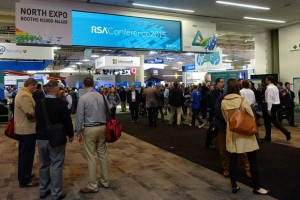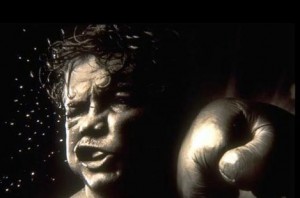The information security community is losing its collective mind because actors from the much-maligned CSI: Cyber TV series are on the keynote schedule for RSA Conference 2016. Dave Lewis, writing as @gattaca, captured the sentiment:
Wait…wait…
just…wait.
Actors from CSI:Cyber are giving keynotes at RSA?
O_o
A lot of analysis has been devoted to RSA’s decision. I like the suggestion Violet Blue makes about how maybe, just maybe, RSA is playing a clever joke on us:
What if RSA’s ongoing keynote stew of disconnect and incompetence is part of something way more thoughtful and complex than we’re giving it credit for?
Jericho wonders in this post why anyone would be surprised, since, he believes, RSA has been a joke for years already:
It’s the party everyone shows up to, and the one you want to be at, to “be seen” and “catch up on the gossip”, even though you hate it. In our industry, it is the embodiment of reality T.V. in many ways. On the flip side, this conference hasn’t actually been relevant to our industry for a long time, where reality T.V. is sadly relevant in the worst ways.
He’s not wrong, though as I’ll note shortly, it’s not really as clear cut as that.
My thoughts:
- There are many other keynoters. Though CSI: Cyber is getting all the attention, the agenda is crammed with a lot of people who practice infosec in real life, including Intel Security Group senior VP and general manager Christopher Young, Snort creator Martin Roesch and the annual Cryptographer’s Panel.
- TV personalities have keynoted RSA before. And you didn’t see the kind of stink being raised today. To be fair, much of the ill sentiment is because CSI: Cyber sucks so badly, failing to portray our business accurately and fostering FUD (fear, uncertainty and doubt, for the uninitiated).
- It’s always been what you make it, anyway. Jericho is right that people attend RSA to see and be seen, hating it all the while. But my personal experience has always been that you get what you put into it. I haven’t attended a keynote in five years. Most tend to be the same old vendors pitching the same old message wrapped in whatever that year’s buzz topic is. I get far more value from the conversations. Reconnecting with peers I haven’t seen in a while. Meeting new people I can learn from. That’s what matters to me. I also believe it’s healthy to be in an arena where you have to keep selling what you bring to the table, be it the technology your employer sells or a side project you care about.
- It’s an opportunity. What if we used the CSI: Cyber appearance as an opportunity to put the feet of the show’s writers and actors to the fire? If we stand up and tell them why their show offends us, maybe their shows stories start sucking less.
OK, probably not. But it was a nice thought.
I’m going to RSA because I’ve gotten much from it in the past. I also have a report to tell people about. My team worked hard on it and we believe it will provide value.
Cheer up, everyone. Have a song:
https://youtu.be/21ewvNVAYUw


